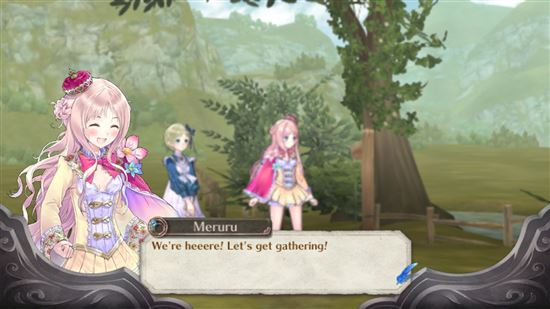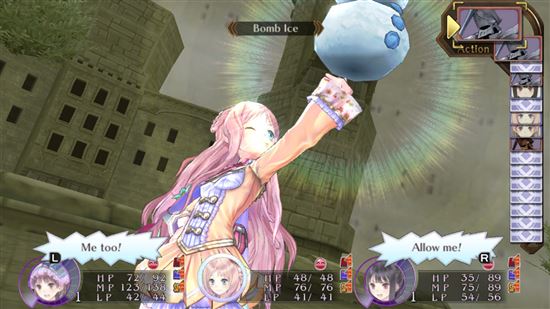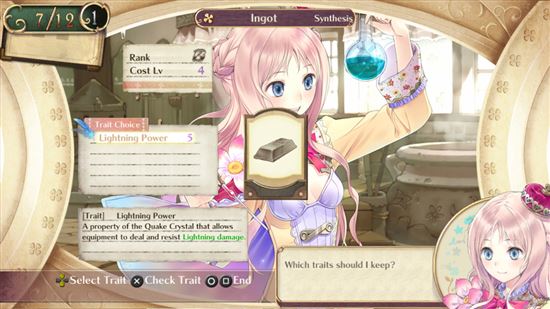Publisher: Tecmo Koei
Developer: Gust
Medium: Digital
Players: 1
Online: No
ESRB: T
For the first half hour or so of Atelier Meruru Plus, I was ready to write the game off as a slightly repackaged version of Atelier Totori Plus. It looks the same; it has the same basic plot (girl dreams of becoming an alchemist); it even has a few of the same characters. While there are certainly worse things in the world to be than Atelier Totori Part II, of course, that wouldn’t make the game particularly appealing to anyone outside of a very specific, JRPG-loving niche.
And then, around the end of that half hour mark, the cut scenes end, the game opens up, and you get to discover that Atelier Meruru Plus is actually a completely different game. Where Totori Plus was focussed on one girl’s quest to become an alchemist, Meruru Plus is about one girl’s quest to build up an entire kingdom.
Admittedly, she’s trying to do so through her work as an alchemist, which means that the two games have a lot in common. You’ll still have to grind through lots of turn-based combat to obtain ingredients, you’ll still have to mix and match those ingredients to get the most out of your concoctions, and you’ll still have to go on all kinds of repetitive quests. On top of that, you’ll be doing it all as a barely pubescent girl, so you’d better get used to lots of running around in bloomers.
The key difference — at least for me — is that it all seems to have a point in Atelier Meruru Plus. Not to take anything away from its Vita predecessor, but Totori Plus’ focus on its heroine’s personal growth meant that the stakes never seemed all that high. Here, by contrast, you’re charged with building up a place for people to live. You have to build new buildings, attract more people, and keep the populace happy. This gives the whole thing a certain strategic feel. While no one would ever mistake it for Risk or Sim City (or whatever other strategy/city-building you want to name), I still liked feeling like my decisions had some kind weight to them, like they affected more people than just the game’s titular character.
Interestingly, even though the decisions are weightier, the game places less pressure on you to get everything done. Whereas Totori’s calendar was pushed forward by every quest and task having a due date, in Meruru you only have one date: the three-year deadline. It’s up to you what quests you want to take on and in which order, and you’re given as much time as you want to finish them. This may seem like a small change, but in reality, it adds to the sense that you need to think strategically (even if most of the quests tend to repeat themselves after awhile).
Now, I can understand if you’re a little skeptical of this. I mean, going by the superficial stuff, Atelier Meruru Plus seems like it should be just another JRPG. But look deeper, and you’ll find that it’s actually a lot more interesting, and addictive, than you could imagine.
(Oh, and a word of warning to anyone who, like me, played the first game and a has a full memory card: apparently your save file from that game unlocks certain things in this one. So even though both games are pretty large, you might want to think about deleting something other than Totori in order to make room for Meruru.)




